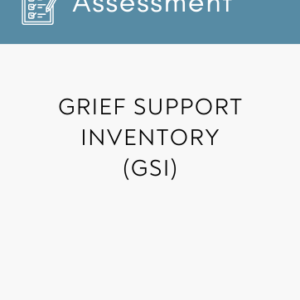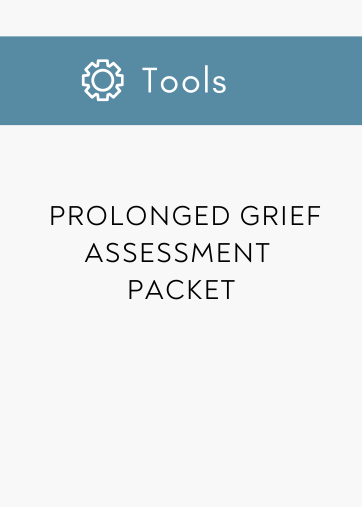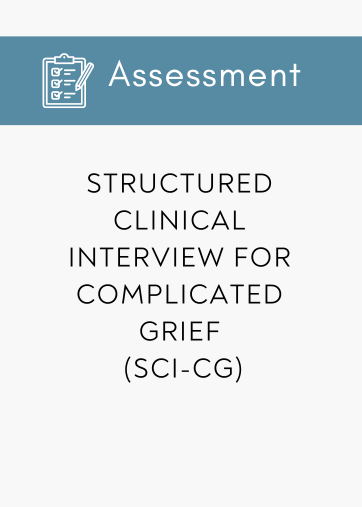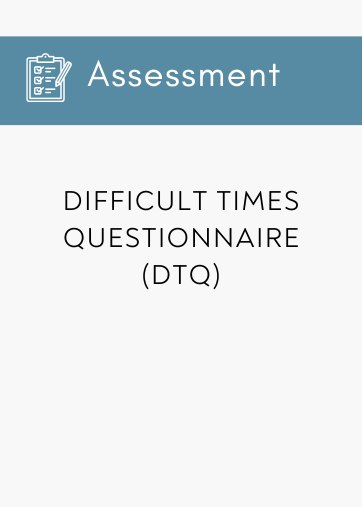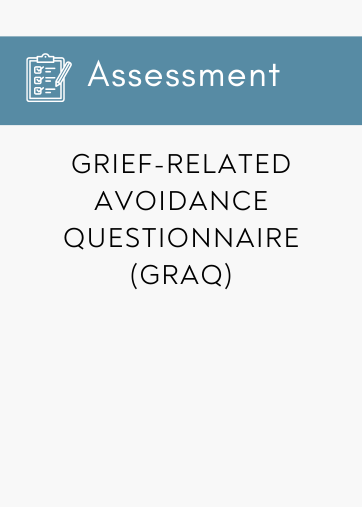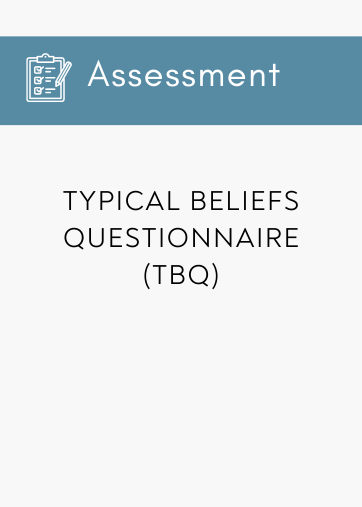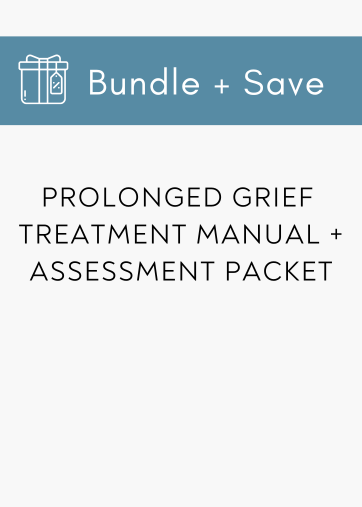Subtotal: $7.95
Product Description
The PG assessment packet includes instruments to screen for PG and to capture important clinically-relevant aspects of the condition, such as typical beliefs, avoidance behaviors, and functional impairment.
Below is a list of the instruments with a brief description.
Brief Grief Questionnaire (BGQ): This is a 5-item screening measure for prolonged grief. It can be used as a written self-report or with questions asked over the telephone
Structured Clinical Interview for PG (SCI-PG): This 31-item semi-structured clinician-administered interview was developed to assess the presence of clinical symptoms of prolonged grief disorder and modeled after the Structured Clinical Interview for DSM (SCID).
Typical Beliefs Questionnaire (TBQ): This self-report questionnaire was created to address the gap in measuring grief-related cognitions and includes common beliefs observed among help-seeking patients with prolonged grief.
Grief-Related Avoidance Questionnaire (GRAQ): Avoidance is common among help-seeking clients with prolonged grief and can contribute to impairment, so it is important to assess avoidance and consider it during treatment. GRAQ is a 15-item questionnaire that asks the client to rate their degree of avoidance of some commonly avoided situations related to bereavement.
Loss Summary (LOSS SUM): The Loss Summary is a list of close relatives and friends the client has lost with a rating of how difficult each loss was. As people with PG often have experienced multiple losses, the LOSS SUM helps to evaluate and keep track of those for treatment or research purposes.
Difficult Times Questionnaire (DTQ); On this form, the client is asked to rate how difficult they find certain calendar dates (e.g., anniversary of the death, birthdays, wedding anniversary, holiday times) and any other difficult time. This information is used to guide work with difficult times in PGT.
Grief Support Inventory (GSI): This is a 2-item questionnaire that asks clients to list people in their life who have been supportive since the loss and people who have been actively unsupportive. Giving this to a client helps them to consider if there are supportive people, even if they are not feeling very close to them. It also acknowledges that there are people who can be unsupportive, potentially validating a client’s experience.
